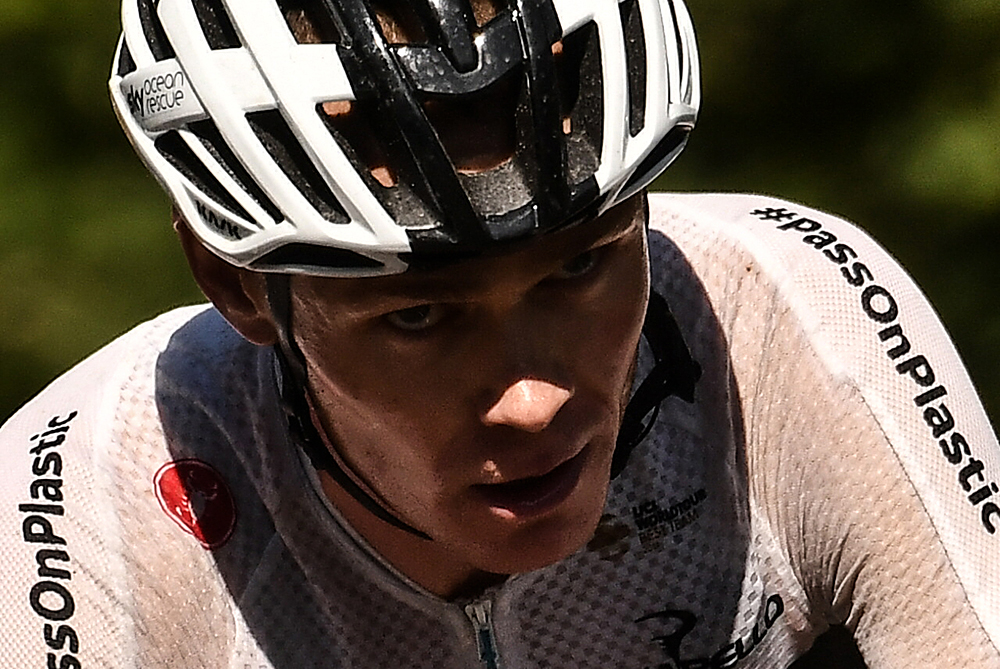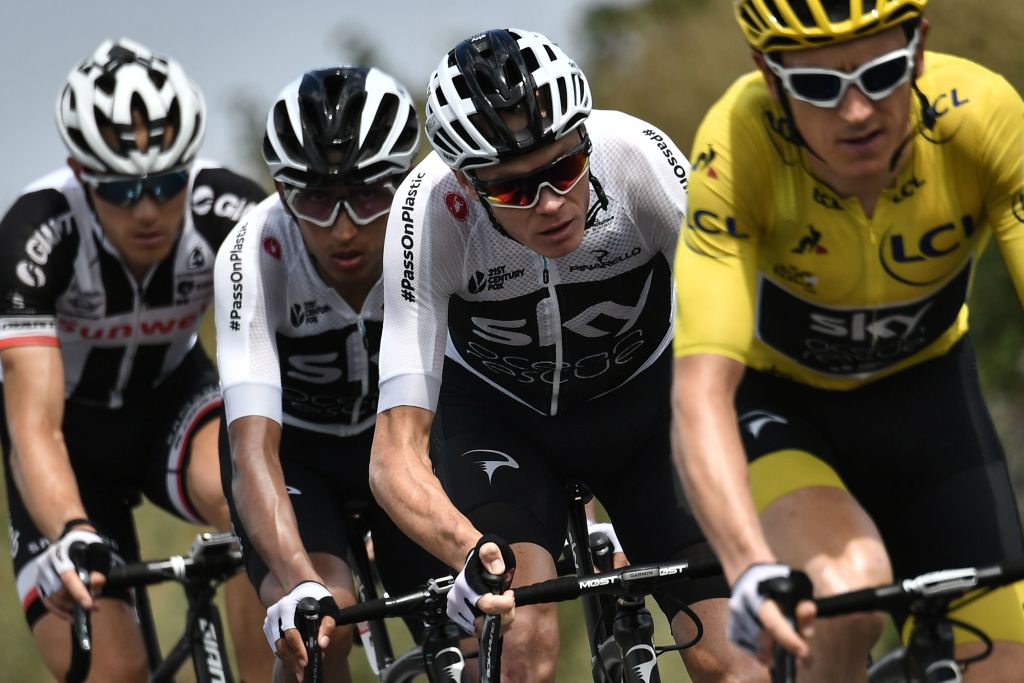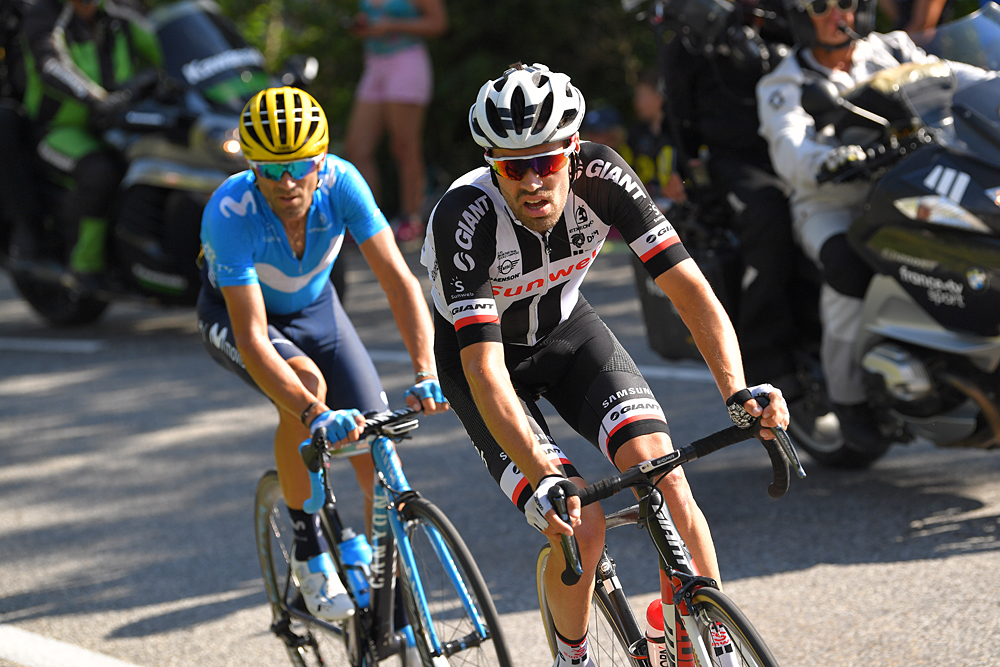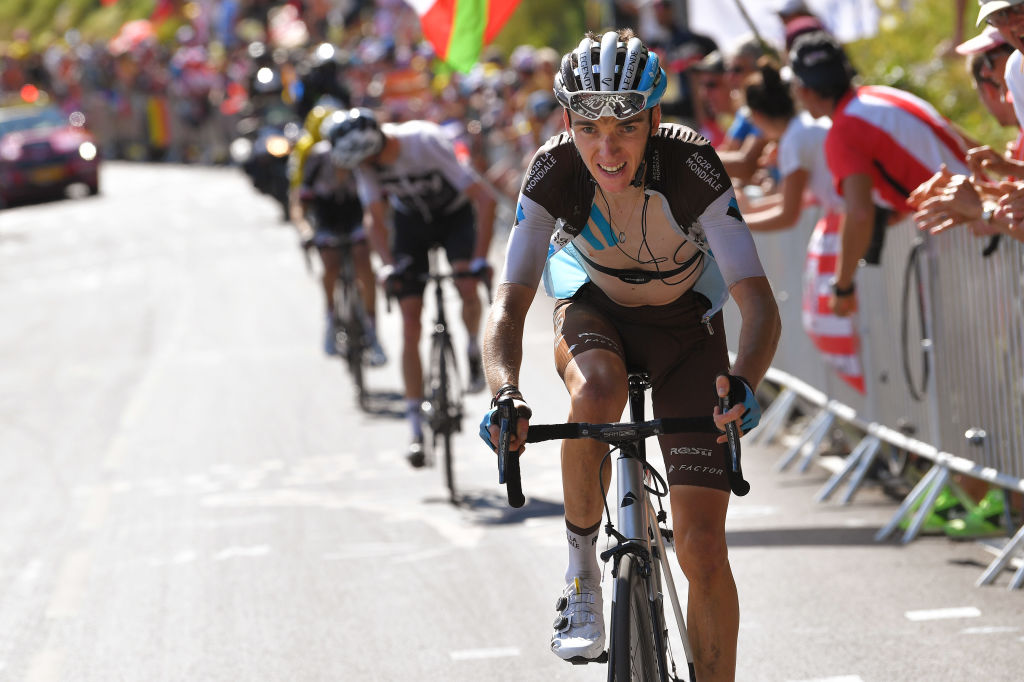The long and the short of the Tour de France's toughest day - Stage 17 Preview
Three mountain passes in 65km on road to Saint-Lary Soulan




In the wake of the fireworks during 2011's compelling 110km leg to Alpe d’Huez, the Tour de France has increasingly found space for one (relatively) short mountain stage on the parcours each year, but Wednesday's stage 17 from from Bagnères-de-Luchon to Saint-Lary Soulan has the feel of something altogether different.
Like a ship in a bottle, route designer Thierry Gouvenou has slotted three mountain passes into the space of just 65 kilometres and then pulled the string to set up the most eagerly-anticipated Tour stage in recent memory. The Montée de Peyragudes, Col de Val Louron-Azet and Col du Portet combine for a total of 38.3km of climbing and 3,126 metres of altitude gained.
Although the Tour's early legend under the stewardship of Henri Désgrange was built on feats of endurance, there have, on occasion, been reduced mountain stages on the parcours. In 1972, Cyrille Guimard out-sprinted Eddy Merckx atop Le Revard after a largely uphill 28km stage from Aix-les-Bains. In 1985, Stephen Roche soloed to victory atop the Col d’Aubisque on a 52km split stage that also took in the Col du Soulor. In 1996, heavy snowfall reduced stage 10 to just 46km, and Bjarne Riis seized yellow after attacking on the Montgenevre and winning at Sestriere.
Nothing in the annals, however, quite matches the novelty of Wednesday's stage, where kilometre zero is at the base of a category 1 ascent and the finish is at 2,115 metres above sea level atop an hors categorie climb. Ordinarily, a short mountain stage encourages explosive attacks from the beginning, but the arduousness of the final ascent might temper some of the early aggression.
"There's no point in going too hard too soon because you want to have legs for that last climb," warned yellow jersey Geraint Thomas (Team Sky) in Bagnères-de-Luchon on Tuesday afternoon, though in truth, it's anyone's guess as to how this stage will play out.
Three peaks
Even the start line is new departure, with the top 20 riders arranged into a Formula 1-style grid according to their positions on general classification, and the rest of the peloton lining up in four groups based on their order in the standings. This feature seems more of a gimmick than anything else – it is certainly hard to imagine Thomas and Chris Froome tearing off ahead rather than waiting for their Sky teammates – but some riders are grateful for small mercies.
"I have no idea how they're going to do it, I guess we'll find out tomorrow," says Dan Martin (UAE Team Emirates). "I'm quite happy about it to be honest, at least we don't have to fight with all the big guys at kilometre zero. I don't know where it is on the course or how they're going to do it, so we'll have to wait and see."
The latest race content, interviews, features, reviews and expert buying guides, direct to your inbox!
AG2R La Mondiale directeur sportif Julien Jurdie is not convinced that the grid will have any lasting impact – "The road is wide at the start so I think the peloton will reform pretty quickly" – but he is keenly aware of the difficulty posed by the day's first climb, the Montée de Peyragudes (Category 1 - 14.9km at 6.7%), whose lower slopes are better known as the Col de Peyresourde. The early ramps are tough enough to splinter the bunch, and the sustained stretches of 8% midway up should whittle down the front group still further.
"The first col is very, very hard, so there could be a sustained tempo there from certain teams and that could cause some surprises early on," Jurdie tells Cyclingnews. "Warming up will be important because we’re not used to hitting kilometre zero right at the bottom of a climb like that. I reckon the first col could be very important. It's the most important climb along with the ascent to the finish."
The rapid descent off the Montée de Peyragudes is followed by the briefest of valleys and an intermediate sprint at Loudenvielle before the road climbs again on the Col de Val Louron-Azet, where Miguel Indurain claimed the first maillot jaune of his career in 1991 following his escape with Claudio Chiappucci. The category 1 ascent is relatively short at 7.4km but steep, with an average gradient of 8.3%.
Cruelly, the final part of the stage is the toughest, with the hors categorie Col du Portet bringing the 2018 Tour to its highest point. The lower part of the climb above Saint-Lary Soulan will be familiar – it has featured as Pla d’Adet in Tours past, but the upper reaches are a new addition: the final kilometres leading to the summit of the climb were only paved this spring.
The Col du Portet is 16km in length at an average gradient of 8.7%, and is, quite simply, a brute. A kilometre in, the gradient pitches to above 10% and continues in the same vein for the next four kilometres or so before the merest and briefest of respites. Midway up the climb, the gradient relaxes to 5%, but it kicks up again shortly afterwards and drags on inexorably towards the summit. The average gradients of the final three kilometres are 8.4%, 8.2% and 10.2%, respectively. There has been nothing as relentless on the 2018 Tour to this point.
"Tomorrow you’re going to see gaps, especially on the last climb," Dan Martin said. “It’s probably one of the most brutal climbs we’ve ever done."
The tactical approach
Outside the AG2R La Mondiale bus in Bagnères-de-Luchon on Tuesday, Jurdie could scarcely hide his disappointment at the détente that reigned in the yellow jersey group on stage 16. "A lot of teams were afraid of the tempo of Sky," he said. Romain Bardet, 5th at 3:21, needs to conjure up something special if he is to repeat his podium finishes of the past two years. Wednesday's stage should inspire more aggressive racing, though it remains to be seen if it will discommode Sky’s collective strength.
"I think honestly it will shake up the GC in spite of everything," Jurdie said. "I'm quite convinced that there will be some changes in position. To what extent, I don't know, but it's an exceptional format with three very difficult climbs. We don't have anything to compare it with, so I think a lot of people in the peloton are asking themselves questions about this stage."
Dan Martin has been committed to the attack on this Tour and seemed to relish the prospect of an unruly day of racing rather than the orderly fare that has become the norm during Sky's long era of dominance. "Everybody says, 'It's only 65k,' but on this terrain it could be three hours. It's an incredibly difficult stage, but I'm really excited for it," Martin said. "Nobody's done a 65k mountain stage before, so nobody knows that's going to happen. I think we’re going to see some aggressive racing. It's going to be a decisive stage. It's a stage that's very open for attacking and I think that's the idea. On days like today [stage 16 – ed.] it's tricky to get any significant gap but It’s going to be one hell of a day."
Geraint Thomas goes into the stage with a lead of 1:39 over teammate Chris Froome, who is riding the Tour after the UCI dropped its anti-doping proceedings against him ahead of the race. The Welshman has 1:50 over Tom Dumoulin (Sunweb), and Primoz Roglic (LottoNL-Jumbo) loiters with intent in 4th overall at 2:38, while Movistar’s Mikel Landa (6th at 3:42) looks a likely attacker.
The combination of the Col de Portet-d’Aspet, Col de Menté and Col de Portillon didn’t make the faintest ripple among the podium contenders on Tuesday, but it is difficult to imagine that they will navigate such serene waters on stage 17. It will be the shortest day of the Tour and yet somehow its longest.
"Tomorrow is going to be the big day – or small day," Dumoulin smiled as he warmed down on Tuesday. "It's going to be a tough one."

Barry Ryan was Head of Features at Cyclingnews. He has covered professional cycling since 2010, reporting from the Tour de France, Giro d’Italia and events from Argentina to Japan. His writing has appeared in The Independent, Procycling and Cycling Plus. He is the author of The Ascent: Sean Kelly, Stephen Roche and the Rise of Irish Cycling’s Golden Generation, published by Gill Books.